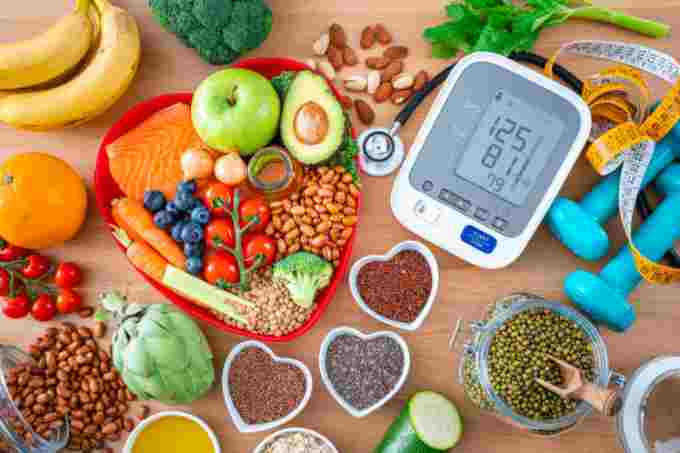Eating healthier foods can help you lose weight, keep your bones strong and reduce your risk for many common health conditions. Simple healthy choices such as drinking water instead of soda or ordering a salad in place of fries can make a big difference.
Avoid sugary drinks and snacks, and limit saturated and trans fats, as these can contribute to obesity and heart disease. Try to cook more meals at home, as this will help you control the ingredients in your food.
1. Weight Control

Eating a healthy diet can help you maintain or achieve a healthier weight. It can also reduce your risk for some chronic (long-term) diseases.
Eating well means choosing foods and beverages that are low in added sugar, solid fats, saturated fat, and salt. It also means eating a wide variety of nutritious foods, such as fruits and vegetables, whole grains, lean meats, nuts, seeds, and beans and peas.
Avoiding ‘junk’ foods and drinks, such as soft drink, lollies, snack foods, and alcohol, can make a big difference to your health. Try to limit these to one or two ‘treats’ a day, but only if you have covered your daily nutrient needs. Talk to a registered dietitian about creating a healthy eating plan that is right for you.
2. Better Health
The body needs a wide variety of foods to function well. A healthy diet includes nutrient-dense foods from all five food groups and is low in fat, salt, and added sugars.
Eating healthily means reducing your intake of saturated fat, trans fats, and sugary foods, while increasing your intake of fibre, fruits, vegetables, and lean proteins. Eating a balanced diet can help protect against obesity, heart disease, high blood pressure, stroke, diabetes and some cancers.
It can be difficult to know what a healthy diet looks like – especially with so much conflicting advice. The best way to eat well is to focus on making healthier choices that you can stick with for life, rather than trying to follow strict rules or cutting out foods completely. The key is to eat a balanced diet that includes lean proteins, whole grains, healthy fats (like olive oil and nuts), and plenty of fruit and vegetables. Limiting processed foods, sweets and high fat snacks is also important.
3. Better Mental Health

Studies suggest that a healthy diet can help reduce depression or anxiety, improve concentration, increase mental clarity and make it easier to get along with others. Properly “feeding” the brain also helps to reduce excessive inflammation; enhances activity of mitochondria, which provide cells with energy; and feeds healthy gut microbes that can have an impact on mood, check out here.
Getting all the nutrients your body needs to function at its best requires eating a variety of foods. This includes complex carbohydrates (such as brown rice and quinoa) and lean proteins, which provide energy for thinking and responding quickly.
You may find that it’s easy to bookmark healthy recipes and pick up kale and quinoa at the grocery store, but you might also find yourself running through a drive-thru when life gets hectic. Instead of letting stress and busy schedules derail your healthy plans, take it one step at a time. For example, switch to a healthier version of the food you crave, such as choosing the lower-calorie option that’s on offer.
4. Better Longevity
Eating a healthy diet is one of the best ways to improve longevity. Eating real foods that are not processed can help to prevent malnutrition, reduce diseases and boost the immune system.
Studies have shown that eating a healthy diet can increase life expectancy by up to 14 years. It is important to eat a balanced diet including fruits, vegetables, whole grains and lean protein. It is also important to limit calorie-dense foods and beverages such as sugary drinks, saturated fats and trans fats.
Summary:
It is also important to get adequate amounts of nutrients such as vitamin A, vitamin C, potassium and calcium. It is recommended to eat at least five servings of vegetables and four servings of fruit each day, along with three to six servings of whole grains and two to four servings of low-fat dairy. It is also recommended to get at least 30 minutes of moderate exercise daily and to avoid smoking and excessive alcohol intake.
